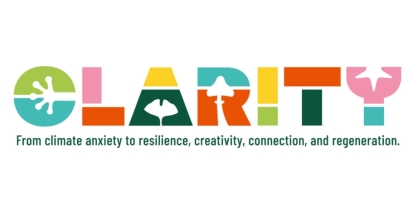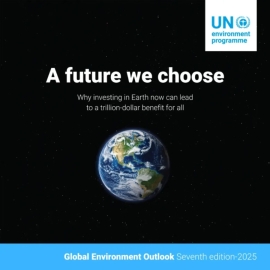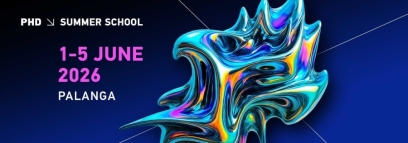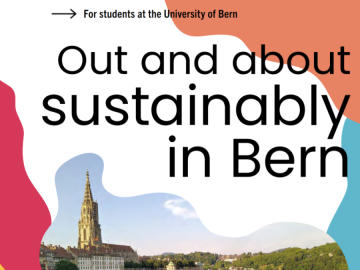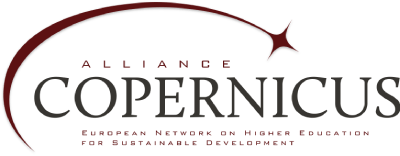#15 02/2025
Bordeaux Montaigne University
Frédéric Hoffmann (Vice President)
Elisabeth Hofmann (Head of the UNESCO Chair for Training of SD professionals)
Emma Gresset (Pedagogical Engineer)
| _ |
"Things are moving in French universities: We now have a legal obligation to train all our bachelor students in 'Ecological Transition for Sustainable Development'." |
COPERNICUS Alliance (CA) The COPERNICUS Alliance focuses on transformative education for sustainable development (ESD) in higher education institutions. What are the issues at stake at Bordeaux Montaigne University (UBM) concerning ESD?
Frédéric Hoffmann (FH) Training to deal with the challenges of transition is at the heart of the values defended by our establishment. The societal upheavals they imply mean that our training courses need to take up this dimension and be able to apply it in both disciplinary and cross-disciplinary ways. This is in line with the more global objective of developing "SAPS" (Sciences with and for Society). Through these courses, we are first and foremost committed to training students. We had already proposed a course on sustainable development as an optional transversal course.
Elisabeth Hofmann (EH) What always strikes me is that the very notion of transformative education is little known in France, at least not in academic circles. This approach is central to what is called "popular education" in France (forms of informal adult education), also inspired – like transformative education – by Paolo Freire's approach to adult education, which aims to change practices.
But on education for sustainable development, things are moving in French universities: We now have a legal obligation to train all our bachelor students in "Ecological Transition for Sustainable Development" (abbreviated in French by TEDS). I'll let Emma Gresset, who is the educational engineer for this course, explain further.
Emma Gresset (EG) The TEDS training scheme was initiated by the French Ministry of Higher Education and Research (MESR) in 2023, following a series of consultation workshops and the drafting of a "note de cadrage"1. The MESR recommends a minimum of 30 hours during undergraduate studies (not including hours of personal student work). And this applies to all students, regardless of their field of study.
CA Can you tell us a little more about this scheme (which is the envy of some of our colleagues in other countries, who have been waiting for this kind of opportunity for a long time)?
EG Modalities can be face-to-face, hybrid or online, with a preference for face-to-face or hybrid formats, to encourage project-based learning. Institutions must offer some form of certification. The Ministry recommends a minimum of 3 ECTS credits, but some universities may choose to award more. The course is aimed at undergraduate students, mainly those in the first year of a bachelor's degree. The themes recommended and considered essential are climate change (including mitigation and adaptation), biodiversity and its preservation, resources and their availability (including energy), just transition and social equity (added as an important theme by the MESR).
The scheme is being rolled out progressively, with the aim of making it generally available by 2025... so this year! This course aims to provide all students with a knowledge and skills base in ecological transition and sustainable development, raising their awareness of these crucial issues for their future professional and civic lives..
CA Of course, a general obligation for ESD can be seen as an opportunity, but one often has to implement requirements of this kind in a context that is far from ideal, because resources are limited and time is short... Could you explain how UBM intends to meet this obligation?
FH The lack of financial resources and training hours has forced us to move towards an all-online learning solution, as a first step. This is just the beginning, as the course is intended to form part of future teaching models for the next training offer.
EG UBM has chosen to deliver its sustainable development courses entirely by distance learning via its teaching platform for two main reasons: to meet the challenges of mass teaching and to optimize the use of available resources. This distance learning course will be worth 3 ECTS credits, obtained by averaging several assessments carried out all along the course through multiple choice (or similar) questionnaires.
Faced with a lack of teaching resources of its own, UBM relies on the teaching resources center of UVED (Université Virtuelle Environnement et Développement durable). More specifically, it uses the so called Common Base of Knowledge and Skills (S3C) offered by UVED as a basis. It is divided into four themes and covers the subjects recommended by the French Ministry of Higher Education and Research (MESR). The teaching team is currently working on adapting this content for UBM students, paying particular attention to the ethical and aesthetic aspects of sustainable development. This solution was chosen as the most viable in the short term, while still meeting the requirements of sustainable development training.
EH It's also worth mentioning that Frédéric and Emma have mobilized a small group of volunteer colleagues (all women, how come? ...apart from our Vice-President, Frédéric) who are reviewing the proposed content, seeking to simplify or clarify certain aspects, and ensuring that it is accessible to students from all backgrounds. We also get involved in formulating questions for the assessments (which is not the most stimulating part...). Personally, I find this collaboration a real asset in itself, and it confirms how cross-cutting sustainable development issues really are, linked to many different disciplines.
CA And what challenges are you facing in this endeavor to propose an obligatory ESD "fit-for-all"?
EG We are encountering many challenges in setting up this cross-disciplinary, multi-disciplinary training program, as are other French institutions. The main obstacle lies in adapting the content and teaching resources, which are considered too complex for first-year undergraduates. How can essential content be simplified without compromising its quality?
Another major challenge was to consider the eco-anxiety that some students might feel during the course. Being entirely online, students will find themselves alone in front of their screens. How can we support them effectively in a course whose themes can be anxiety-provoking?
EH As far as adapting to the level of the students who come to us from high school is concerned, we try to take into account that they have chosen different disciplines and have very different motivation for the "hard sciences" part of ESD. Offering a one-size-fits-all teaching approach is like squaring a circle. The challenge is to strike the right balance: We don't want to put them off from the very first chapter with overly complex content, while still offering quality teaching that really gives them a foundation of knowledge and keys for comprehension of complex realities.
And indeed, we're also faced with this dilemma at the heart of education for sustainable development: how do we make our students aware of the urgency of the situation and the importance of taking action, while at the same time transmitting hope! Offering them concrete opportunities to act seems essential.
FH We'd like to follow up this foundation course with the development of a certification linked to transitions and in line with the school's SD&CSR plan. The aim will be to extend the training through student action, in the form of a project involving awareness-raising, the dissemination of knowledge and the promotion of eco-responsible gestures. It will lead to certification, of course, but also to recognition of the student's commitment (points counting towards the diploma).
CA How have other universities in France organized themselves?
EG The introduction of TEDS courses in French higher education is a gradual process. Several institutions have already launched training programs for the start of the 2024/2025 academic year. Implementation varies from institution to institution. Some universities have integrated TEDS into their existing curricula, in particular when renewing their range of courses. Other establishments, particularly those with a strong environmental science orientation, were already offering teaching units (UE) to raise awareness of the ecological transition even before the TEDS initiative.
CA If you had more time and more resources, what would be your ideal scheme?
FH Ideally, I'd like to be able to implement a more action-oriented and active teaching approach. After learning the basic concepts, we'd have to get our students to work in project mode, so that they can develop a more applicative dimension to go beyond what are sometimes abstract and theoretical concepts. Some of them are already very aware of these issues, and could become real ambassadors for training by relaying the message to their fellow students.
EG In an ideal world, we'd have more time to organize training. This would enable us to design courses directly by ourselves, rather than relying on those of UVED. With more resources, we could offer a hybrid format to our students: theoretical teaching accessible remotely, completed by face-to-face workshops for practical application.
EH Yes, ideally, we'd like to be able to teach in groups of 30 or 40 maximum, and not just once, but every year. And use this course to set up projects to promote this transition. These projects could be implemented by the university and its partner municipalities, to also improve transitions in our institutions and communities. And instead of assessing students by MCQs, the proposed projects could be graded, making the assessment more constructive and relevant.
And I'd also like to see us, as teachers and researchers, trained to integrate these issues transversally into our teaching and research. After all, we're also learners when it comes to these complex issues and the challenges they represent at every level!
CA Thank you for this conversation!
1 Framework and recommendations from the French Ministry of Higher Education and Research, "Training undergraduates in the ecological transition for sustainable development" (in French): https://www.enseignementsup-recherche.gouv.fr/sites/default/files/2023-10/note-de-cadrage-formation-des-tudiants-de-1er-cycle-pdf-29688.pdf
Contact Elisabeth Hofmann:


